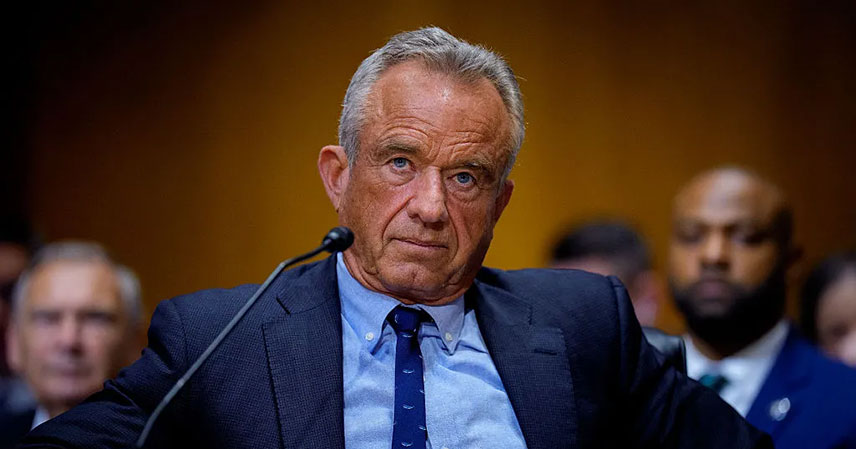The past week has witnessed two significant developments that highlight the complex interplay between politics, technology, and public health. First, a controversial vaccine advisory panel, hand-picked by Robert F. Kennedy Jr., surprisingly voted against requiring prescriptions for COVID-19 vaccines. Simultaneously, President Trump announced a seemingly finalized deal regarding TikTok’s US operations, a deal whose details remain shrouded in mystery and whose confirmation by the Chinese government is conspicuously absent. These seemingly disparate events share a common thread: the blurring lines between political influence, regulatory decisions, and the public interest.
This blog post will delve into both controversies, analyzing the key players, decisions, and potential implications. We will explore the political maneuvering behind the vaccine panel’s vote, examine the uncertainty surrounding the TikTok deal, and ultimately consider the broader implications of these events for public trust in government and the future of technological regulation.
By examining these seemingly unrelated events, we can gain valuable insights into the current political climate and the challenges of navigating complex issues in an increasingly polarized world. The lack of transparency and the conflicting narratives surrounding both situations raise serious questions about accountability and the potential for undue influence in critical decision-making processes.
RFK Jr.’s Vaccine Panel: A Controversial Vote 💉
Robert F. Kennedy Jr.’s newly constituted Advisory Committee on Immunization Practices (ACIP) recently held a meeting that was, to put it mildly, eventful. The committee, stacked with individuals who have expressed skepticism about vaccines, voted 6-6 on a proposal to require prescriptions for COVID-19 vaccines. The tie ultimately resulted in a “no” vote from the chair, Dr. Martin Kulldorff.
Several committee members raised concerns about limiting access to vaccines, particularly for underserved populations. However, the meeting was also marked by discussions that cast doubt on the established safety and efficacy of COVID-19 vaccines, raising serious concerns about the panel’s scientific credibility and its potential to spread misinformation.
This vote carries significant implications. It could impact vaccine access, particularly for those without easy access to healthcare providers, and potentially undermine public health efforts to maintain vaccination rates. The process itself, with its apparent disregard for established scientific consensus and its questionable appointment process, raises serious questions about the integrity of the advisory process.
The TikTok Deal: Unclear Terms and Uncertain Future 📱
President Trump’s announcement of a TikTok deal with China is equally perplexing. While he declared victory, the Chinese government has yet to officially confirm any agreement. The proposed deal involves a consortium of US investors, led by Oracle, taking a significant stake in TikTok’s US operations. However, the specifics regarding data control, algorithm licensing, and the overall structure of the new entity remain largely unknown.
This lack of transparency raises concerns about potential backroom deals and the possibility of overlooking crucial aspects of national security and data privacy. The absence of concrete details leaves many questions unanswered, including the extent of Chinese influence over the US operation and the long-term implications for data security and user privacy.
The claim by President Trump of a “tremendous fee plus” for brokering the deal further fuels speculation and raises questions about potential conflicts of interest and the transparency of the negotiation process. The role of Vice President JD Vance and his advisor, Sean Cooksey, in these negotiations also warrants closer scrutiny.
The Bigger Picture 🌍
Both controversies highlight a growing trend of political influence over scientific and regulatory bodies. The composition of RFK Jr.’s ACIP raises questions about the politicization of public health decisions, while the opacity surrounding the TikTok deal underscores the challenges of regulating powerful technology companies in an increasingly interconnected world. These situations underscore the need for greater transparency and accountability in government decision-making processes.
The lack of clear communication and the conflicting narratives surrounding both issues erode public trust. This erosion of trust can have serious consequences, hindering effective public health initiatives and potentially damaging international relations.
What This Really Means 💡
The events of the past week reveal a deeper, more troubling trend: the erosion of trust in established institutions and the rise of misinformation. The ACIP’s vote, despite its lack of clear impact, signals a potential shift towards vaccine hesitancy and a disregard for scientific consensus. The TikTok deal, clouded in secrecy, raises concerns about the transparency of international negotiations and the potential for backroom deals that prioritize political gain over national interests.
These events, taken together, should serve as a wake-up call. We need greater transparency in government decision-making, stronger mechanisms for ensuring the integrity of scientific advice, and a renewed commitment to evidence-based policymaking. The failure to address these issues will only exacerbate existing divisions and undermine public trust in the institutions that are crucial to a functioning democracy.
Key Insights
- RFK Jr.’s ACIP vote highlights the politicization of public health decisions and the potential for misinformation to undermine public health efforts.
- The lack of transparency surrounding the TikTok deal raises concerns about potential backroom deals and the prioritization of political gain over national interests.
- Both controversies underscore the need for greater transparency and accountability in government decision-making processes.
- The erosion of trust in established institutions and the rise of misinformation pose significant challenges to effective governance and public health.
- These events necessitate a renewed commitment to evidence-based policymaking and a stronger emphasis on transparency and accountability.
In conclusion, the seemingly disparate events surrounding RFK Jr.’s vaccine panel and the TikTok deal are interconnected threads in a larger tapestry of political maneuvering, questionable decision-making, and a growing lack of trust in established institutions. These events should serve as a stark reminder of the importance of transparency, accountability, and a steadfast commitment to evidence-based policies in navigating the complexities of the 21st century.
This article was synthesized from the following sources:



